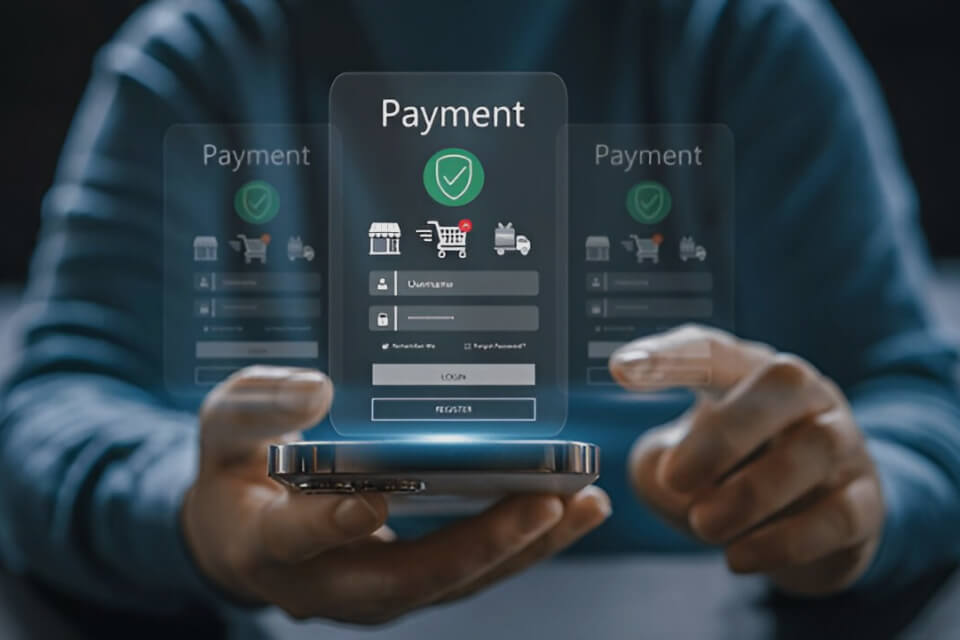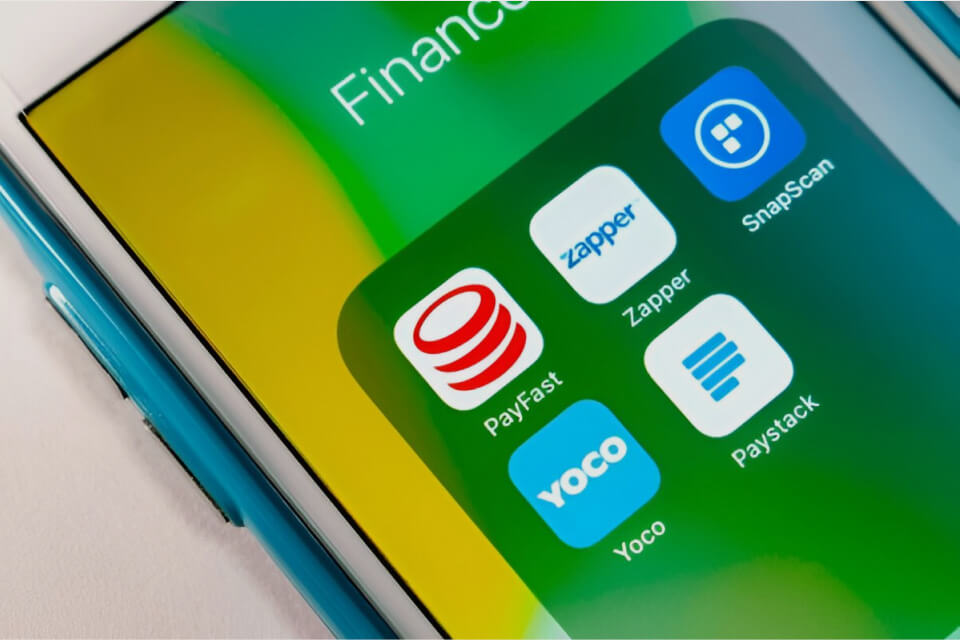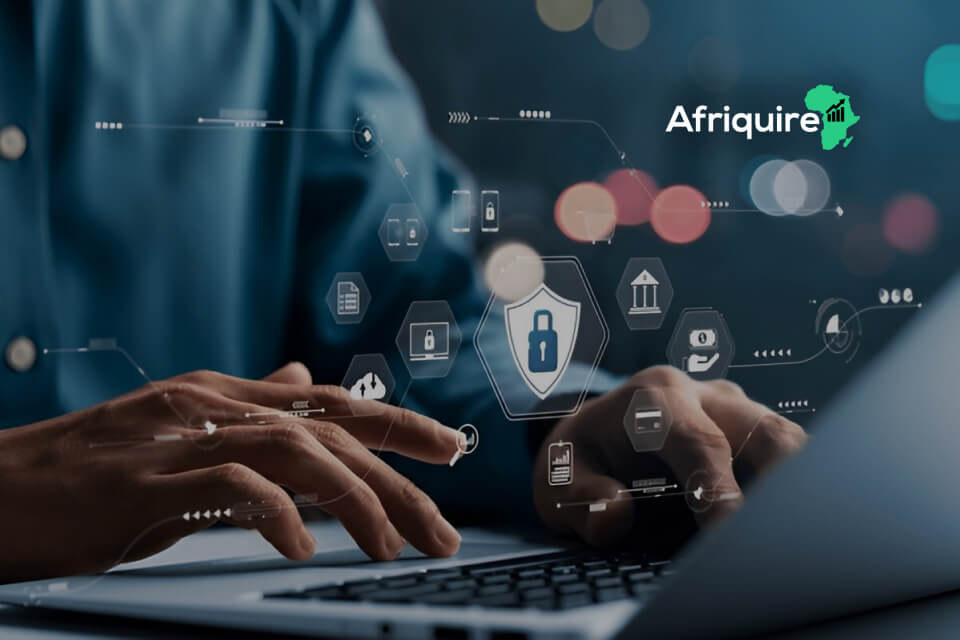Introduction
Secure digital payment systems in Africa are becoming very important today as more people and businesses use technology to send and receive money. Mobile money, online payments, and digital wallets make paying for goods and services easier and faster. But as more people use these tools, keeping them safe becomes more important. When digital payment systems are not secure, people can lose money. Hackers can steal private information, and that causes problems for everyone. That’s why strong security is now a big focus in Africa’s digital economy.
This article looks at how to secure digital payment systems in Africa, why security is vital in financial technology, and the risks if systems are not properly protected. Understanding these points will guide better ways to integrate digital payments with African banking systems, how to choose the right digital payment solution, and how governments play a role in regulating digital payments.
Overview of Digital Payment Growth in Africa
Over the last 10 years, digital payments have grown very fast in Africa. One big reason is mobile money, which started in places like Kenya. Now, millions of people across the continent use mobile wallets and apps to pay bills, buy goods, and send money to friends and family.
As internet access and smartphone use increase, more people are turning to cashless payments. Many startups and fintech companies are also creating new tools that make payments easier. These tools are helping more people connect to banks and use safe financial services.
This growth is also making it easier for microfinance institutions to reach small businesses. In fact, microfinance for African small businesses is becoming more efficient through digital payments. That means more people can grow their businesses without using cash.
Importance of Security in Financial Technology
Security is one of the most important parts of digital payments. Every time someone uses an app or website to send money, their private information must be protected. If it’s not, hackers could steal their money or identity.
To keep users safe, payment companies must use strong security tools. These include things like passwords, one-time codes, and even fingerprint or face scans. These tools make sure only the right person can use the account.
Governments also play a big part. They create rules to make sure payment systems are safe and fair. When users know their money is protected, they feel more confident using digital services.
Risks of Unsecured Digital Payment Systems
If a digital payment system is not secure, many things can go wrong. Cyber attacks like hacking or phishing can steal money or important information. Once people lose trust in the system, they may stop using it.
Another risk comes from systems that don’t work well together. If one service can’t connect with another, it may cause mistakes in transfers or delays in sending money. This is a big issue, especially when making payments across countries.
Poor internet connections can also make systems easy to attack. That’s why it’s important to always improve security as the system grows. Good security protects customer data, reduces fraud, and keeps the entire payment system strong.

Best Practices for Ensuring Payment Security
Making sure digital payments are safe in Africa is very important. As more people use digital payments every day, we must protect users and businesses from online fraud. So, what are the best ways to do this? Let’s break it down into simple steps everyone can follow to secure digital payment systems in Africa
Use of Two-Factor Authentication (2FA)
First, let’s talk about two-factor authentication, or 2FA. This is a security step that makes sure only the right person can access a payment account.
For example, when someone tries to log in or make a payment, they must enter their password and a special code sent to their phone. That way, even if someone steals the password, they still can’t access the account.
This method is easy to use, but very powerful. Every digital payment platform in Africa should use 2FA to reduce the risk of fraud.
Regular Software Updates and Patching
Next, let’s look at software updates. They may seem small, but they are actually very important.
Hackers often find weaknesses in old software. When updates are not installed, those weaknesses stay open. That is why digital payment companies must update their systems often. This stops many attacks before they even happen.
Also, users should update their apps and devices to make sure they stay protected.
Secure Payment Gateways
Now, think of a payment gateway as a guard between the customer, the business, and the bank. It makes sure the payment information is sent safely.
Good gateways use something called encryption. This means your card numbers and other personal details are scrambled, so no one can steal them while being sent.
Choosing strong, certified payment gateways is a big step toward secure digital payment systems in Africa.
Staff Training and User Awareness
Technology alone is not enough. People also need to understand how to stay safe.
That’s why both staff and users should learn about threats. Staff members need training on how to spot scams and fake transactions. At the same time, users should know how to create strong passwords and avoid dangerous links or apps.
When everyone understands how to stay safe, the entire payment system becomes stronger.
Transaction Monitoring and Fraud Detection Systems
Here’s another powerful tool: real-time monitoring.
Digital systems today can watch payments as they happen. They use smart tools that look for anything unusual. If something doesn’t look right, they send an alert or block the payment before damage is done.
Some systems even use machine learning, which helps them get better at spotting fake payments over time.
Common Security Threats and How to Address Them
As more people in Africa use mobile wallets, online banking, and digital money transfers, keeping these systems safe is now more important than ever. But with more usage comes more risk. Hackers and scammers are always looking for ways to steal money or information. To secure digital payment systems in Africa, we need to understand the most common security threats and how to stop them.
Phishing and Social Engineering Attacks
Phishing happens when scammers pretend to be someone you trust, like a bank or payment app. They send fake messages or emails asking for your password or account number. Sometimes, they even create websites that look real. Social engineering is when someone tricks or pressures you into giving private details or clicking a harmful link.
To avoid these tricks, always be careful with messages from people or numbers you don’t know. Never click on suspicious links. Payment companies should also teach users how to recognise scams. Strong login steps like two-factor authentication can help keep your account safe.
Malware and Ransomware
Malware is harmful software that can get into your phone or computer. It can steal your money or freeze your device. Ransomware is a type of malware that locks your files and asks you to pay money to get them back.
To stop this, make sure your phone or laptop has the latest updates. Use antivirus apps, and don’t download anything from strange websites. Payment platforms should also use secure systems like encryption and real-time alerts to catch threats fast.
Insider Threats
Not all dangers come from outside. Sometimes, people inside a company, like staff or former workers, can cause harm. They might steal data or break rules on purpose. Other times, they might do it by mistake.
To reduce this risk, companies should be careful about who gets access to what. They should also check employees’ work history and track system activity. Giving regular training on how to stay safe helps stop careless mistakes.
SIM Swap Fraud
SIM swap fraud happens when a criminal takes control of your phone number by tricking or bribing mobile workers. Once they have your number, they can reset your account passwords and steal your money.
You can protect yourself by setting a PIN code with your network provider. If your phone suddenly stops working or you see strange messages, report it right away. Telecom companies and payment apps should also double-check people’s identity before making any changes.
Countermeasures and User Education
Using tools like multi-factor login, strong passwords, and fraud alerts can help, but education is just as important. Everyone should learn how to stay safe online. That includes keeping your device updated, avoiding fake websites, and being careful with who you trust.
For banks and fintechs working to integrate digital payments with African banking systems, using secure methods like protected APIs is very important. If you’re wondering how to choose the right digital payment solution, start by asking how it keeps your money and data safe.
Also, the role of the government in regulating digital payments can’t be ignored. Governments must set clear safety rules and run public awareness campaigns. This builds trust and helps promote digital payments adoption across the continent.

Compliance with Regional and International Standards
To secure digital payment systems in Africa, it is important that companies and service providers follow the right rules. These rules come from both local and international bodies. They help keep digital payments safe, trusted, and respected by banks, customers, and governments. Following these rules makes sure the entire payment system runs smoothly and safely.
Let’s now look at how these rules work, why they matter, and what challenges may show up.
Overview of Regional Regulations (e.g., NDPR, PAPSS)
Across Africa, more countries are creating their own rules for digital payments. For example, Nigeria has the Nigeria Data Protection Regulation (NDPR). This is a law that guides how companies should use and protect people’s personal data. It is especially important for payment companies and financial services.
There is also the Pan-African Payment and Settlement System (PAPSS). This is a payment system that connects African banks and payment platforms. It allows quick and safe payments between countries. Thanks to PAPSS, businesses and people can send and receive money across borders with ease.
These regional laws are becoming more important as more people use digital tools like mobile money, digital wallets, and internet banking. When service providers follow the rules, they can integrate digital payments with African banking systems more smoothly. This also helps users enjoy fast, easy, and safe payment services.
International Standards like PCI DSS and GDPR
Apart from African rules, there are also important global standards that payment companies should follow.
One of them is the Payment Card Industry Data Security Standard (PCI DSS). This is a list of rules that protects cardholder data. Any business that accepts card payments must follow these rules. They include things like using strong passwords, protecting networks, and checking systems often.
Another important rule is General Data Protection Regulation (GDPR). This law started in Europe, but it affects businesses around the world. If a payment company in Africa is working with customers in Europe, it must follow GDPR. This law protects customer data and gives people more control over how their data is used.
When African companies follow both regional and global rules, it shows they take data safety seriously. It also helps them grow and gain trust from users and business partners.
Benefits of Regulatory Compliance
There are many good reasons to follow these rules.
First, it protects customers from fraud and theft. When people feel safe, they are more likely to use digital payments. This builds trust.
Next, it helps businesses stay out of legal trouble. Failing to follow rules can lead to big fines and damage to a company’s name. But when businesses follow the rules, they can also stand out from others. This can give them a strong position in the market.
Also, regulatory compliance makes it easier for companies to grow. They can enter new markets and work with banks and investors more easily.
For this reason, it’s smart to learn how to choose the right digital payment solution. Picking one that already meets safety rules saves time and builds confidence. When businesses stay compliant and also know how to promote digital payments adoption, they create a winning formula for long-term success.
Challenges with Enforcement and Adoption
Even though these rules are important, following them can be hard in some African countries.
One big issue is that each country may have different laws. This can make cross-border payments tricky.
Also, not every country has strong digital systems. In many rural areas, internet access is still limited. Some small business owners and customers may not know much about these rules. This slows down the adoption of safer systems.
On top of that, some governments don’t have enough resources to check if companies are following the rules. As a result, some unsafe services may still exist.
But things are improving. The role of the government in regulating digital payments is growing. More countries are updating their laws and building stronger systems. Governments are also doing more to educate the public and support secure digital services.
Role of Encryption and Authentication Technologies
In Africa, the more people are using mobile money, online banking and online shopping, the more important it is to keep payments safe. If payment systems are not secure, there can be fraud, data theft, and serious problems for users and businesses. Luckily, modern technology makes it possible to keep things safe and simple.
Importance of Data Encryption (end-to-end, TLS/SSL)
First, let’s talk about how your information stays private when you pay online.
Whenever you send money or share bank details, your information goes through many computers. To keep it safe, digital payment systems use encryption. This is like turning your information into secret code so only the right person can read it.
There are two main ways this happens:
- End-to-end encryption makes sure only you and the person or bank you’re sending information to can see what’s being shared.
- TLS and SSL are special tools that create a safe path between your device and the payment system. This blocks anyone from spying or stealing your details.
Because hackers keep coming up with new tricks, companies need to keep updating their security. This is very important when they integrate digital payments with African banking systems, as banks want top-level protection.
Role of Biometric and Token-based Authentication
Passwords are not enough anymore. They can be guessed or stolen. That’s why better ways to protect your account are now used.
One strong method is biometric login. This could be your fingerprint or face. Since nobody else has your exact features, this keeps your account safer.
Another smart method is token-based login. This means you get a special code or one-time password (OTP) on your phone. You must enter it before your payment goes through.
By using both methods together, payments become a lot more secure. This makes people trust the system more. It also helps governments understand the role of government in regulating digital payments, since these steps can become standard rules.
Public Key Infrastructure (PKI) in Secure Transactions
This next part may sound a bit advanced, but stay with us.
Public Key Infrastructure, or PKI, is a system that uses two digital keys. One is public and one is private. They work together to keep digital payments safe.
PKI helps by:
- Checking that users and banks are who they say they are
- Making sure nobody can secretly change your payment
- Proving that messages and payments came from the right place
This technology helps build trust. When people know their payments are safe, they are more likely to use them. It also makes it easier to choose the right digital payment solution because security becomes a top reason.
Mobile Device Management and App Security
Most people in Africa use their phones for sending money or buying things online. Because of this, keeping mobile phones safe is a big deal.
Mobile device management, or MDM, helps companies make sure only safe and updated phones can use their services. If a phone gets stolen, they can even delete the data from far away.
Then there’s app security. This means the app is tested often, updated regularly, and built with strong code. It also makes sure your private details stay safe, even if the phone gets hacked.
When phones and apps are secure, people feel more confident. This is how to promote digital payments adoption across Africa. Also, when governments check that apps are safe, it shows how serious they are about the role of the government in regulating digital payments.

Incident Response and Recovery Strategies
To secure digital payment systems in Africa, strong response and recovery strategies are needed. These steps help protect users, fix problems quickly, and build trust. Let’s explore what those strategies look like in a way that’s easy to understand.
Creating a Digital Payment Security Response Plan
First, every organisation should have a clear response plan. This is like a guide that shows what to do if something goes wrong with the payment system.
The plan should say who is in charge of each task. It must also include how to talk to customers and regulators if a problem happens. Even more, it should show how to find out what went wrong, whether it’s a hacker attack, system failure, or fraud.
Next, don’t just write the plan and leave it. Test it often with practice drills. Also, update it regularly to match new threats or technology. That way, when something really goes wrong, everyone knows what to do fast and clearly.
Incident Reporting and Forensic Analysis
Once a problem happens, it’s important to report it immediately. The faster the report, the faster the problem can be solved.
After things are under control, the next step is to find out what caused the issue. This is called forensic analysis. Experts will check how the system was attacked, what part was weak, and what kind of data might have been affected.
From this, the system can be improved to stop similar problems in the future. It’s also helpful for organisations to work with cybersecurity experts and local authorities during this time.
Backup and Disaster Recovery Protocols
Backing up data means keeping safe copies of all important information in case something goes wrong. This is one of the most important steps for recovery.
Next, there should be a disaster recovery plan. This plan explains how to restore services if there’s a system crash or attack. With a good recovery plan, users can get back to using the payment system quickly, even after something serious happens.
It’s also important to test backups often. If not, you may find out too late that a backup doesn’t work.
Learning from Breaches to Improve Systems
Every time a system fails or gets attacked, there’s something to learn. These lessons show where the weaknesses are and how to fix them.
After every incident, teams should meet to talk about what went wrong and how it can be avoided next time. This helps improve training, update systems, and change old habits.
Even better, when companies share what they’ve learned with others, the whole industry becomes safer. This makes it easier to integrate digital payments with African banking systems and build trust across the region.
Frequently Asked Questions (FAQs)
1. How do encryption and authentication technologies secure digital payment systems?
Encryption protects data by turning it into code, making it unreadable without a key. Authentication verifies users’ identities using methods like passwords, two-factor authentication, or biometrics to block unauthorized access.
2. What regional and international standards must African digital payment systems comply with?
Systems comply with standards like PCI-DSS (Payment Card Industry Data Security Standard), GDPR for data privacy, and local regulations from financial and cybersecurity authorities to ensure secure transactions.
3. How can African businesses address these security threats?
By educating users, implementing strong encryption, using multi-factor authentication, monitoring transactions for fraud, and regularly updating software to patch vulnerabilities.
4. How important is integrating digital payments with African banking systems?
This is very important. It allows seamless, secure transactions, improves user trust, and promotes wider adoption by linking payment platforms with trusted banks under regulatory frameworks.
5. What role does government regulation play in securing digital payments?
Governments set and enforce security standards, promote investment in cybersecurity, and encourage harmonised regulations across countries to protect users and build a safe payment ecosystem.
Conclusion
Securing digital payment systems in Africa is vital to build trust and promote the adoption of fast-growing digital finance solutions. By using strong encryption and authentication technologies, businesses can protect user data and prevent fraud. Robust incident response and recovery plans help maintain system integrity during attacks. Compliance with international and regional standards ensures safer payments.
Furthermore, integrating digital payments with African banking systems and strong government regulation play key roles in safeguarding transactions. Overall, adopting these best practices is essential to secure digital payment systems in Africa and support the continent’s digital economy growth.



